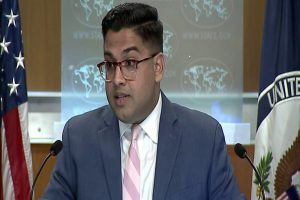The Central Drugs Standard Control Organisation (CDSCO), along with the National Regulatory Authority of India (NRA) and affiliated institutions, has been found to meet the World Health Organisation (WHO) published indicators for a functional vaccine regulatory system, said the Union Health Ministry on Friday.
A team of international experts from various countries, led by WHO (HQ) in Geneva, arrived at this conclusion following a comprehensive and in-depth scientific review of India’s vaccine regulatory system conducted from September 16 to 20, it said.
Safety, efficacy, and quality are three basic parameters of the assessment of vaccines. The WHO has established global standards and benchmarks for assurance of vaccine quality through the development of tools and guidelines, benchmarking of the NRA and prequalification programme of vaccines.
“The WHO NRA re-benchmarking was aimed to assess and document the status of the India regulatory system in the area of vaccine regulation, re-benchmark the status of the India vaccine regulatory system against the WHO NRA Global Benchmarking Tool (GBT) and measuring the maturity of the system,” the Health Ministry said.
India has been declared functional against all the core regulatory functions of the WHO Global Benchmarking Tool Version VI. India’s vaccine regulatory system was benchmarked in the year 2017 against Global Benchmarking Tool (GBT) version V which is now revised to GBT VI with raised bars and stringency in benchmarking criteria, it said.
The Union Health Ministry said India retains maturity level 3 with the highest marks in several functions.
Reacting to this landmark achievement, Punya Salila Srivastava, Union health secretary, said, “The CDSCO, in collaboration with WHO, has made exemplary efforts towards this achievement. India is one of the main players in the pharmaceutical industry worldwide and is known for its affordable vaccines and generic medicines.”
She congratulated all the teams for their hard work in achieving this milestone for the country and re-emphasised the strength of the Indian regulatory system and its commitment to supplying quality products worldwide to enhance health outcomes.
Roderico H Ofrin, WHO Representative to India said, “The WHO plays a pivotal role in supporting countries in strengthening their regulatory systems, and promoting equitable access to quality, safe, efficacious, and affordable medical products and health products. This is indeed a great achievement, and we would like to congratulate the Ministry of Health and Family Welfare and its affiliated institutions.”
Rajeev Singh Raghuvanshi, Drugs Controller General (India), CDSCO highlighted that “India, as a large vaccine producing country, is currently supplying several vaccines to the UN agencies (UNICEF, WHO and PAHO)”.
India is a major vaccine producer that has 36 major vaccine manufacturing facilities. These vaccines are used for the national and international market (150 countries), which makes India a major vaccine supplier across the globe.
The WHO Prequalification Programme (PQP) is aimed at facilitating access to vaccines that meet unified standards of quality, safety and efficacy as well as programme needs. It is also a prerequisite for manufacturers to supply to countries through United Nations procuring agencies. A functional NRA is a criterion for WHO prequalification of vaccines.












